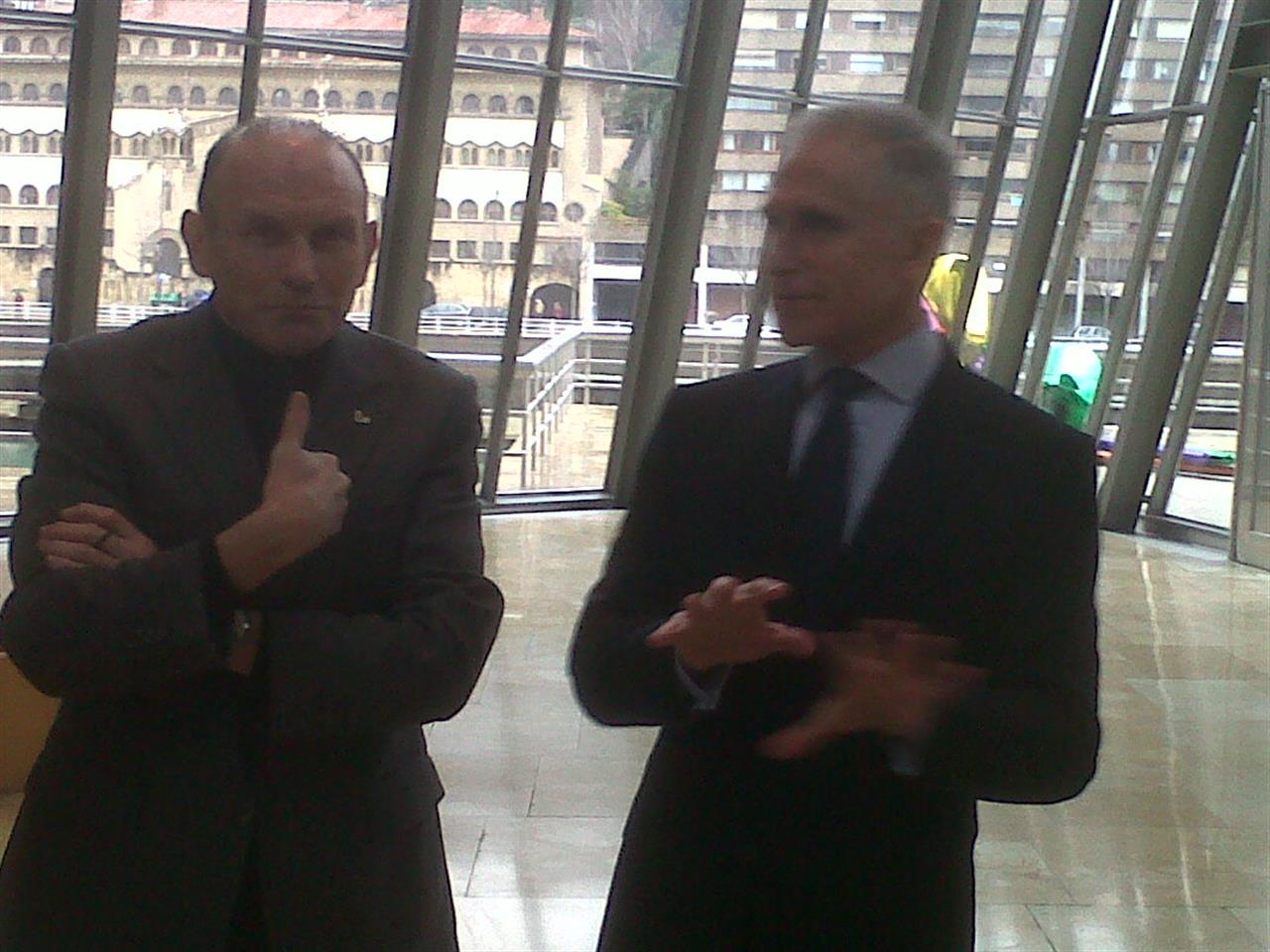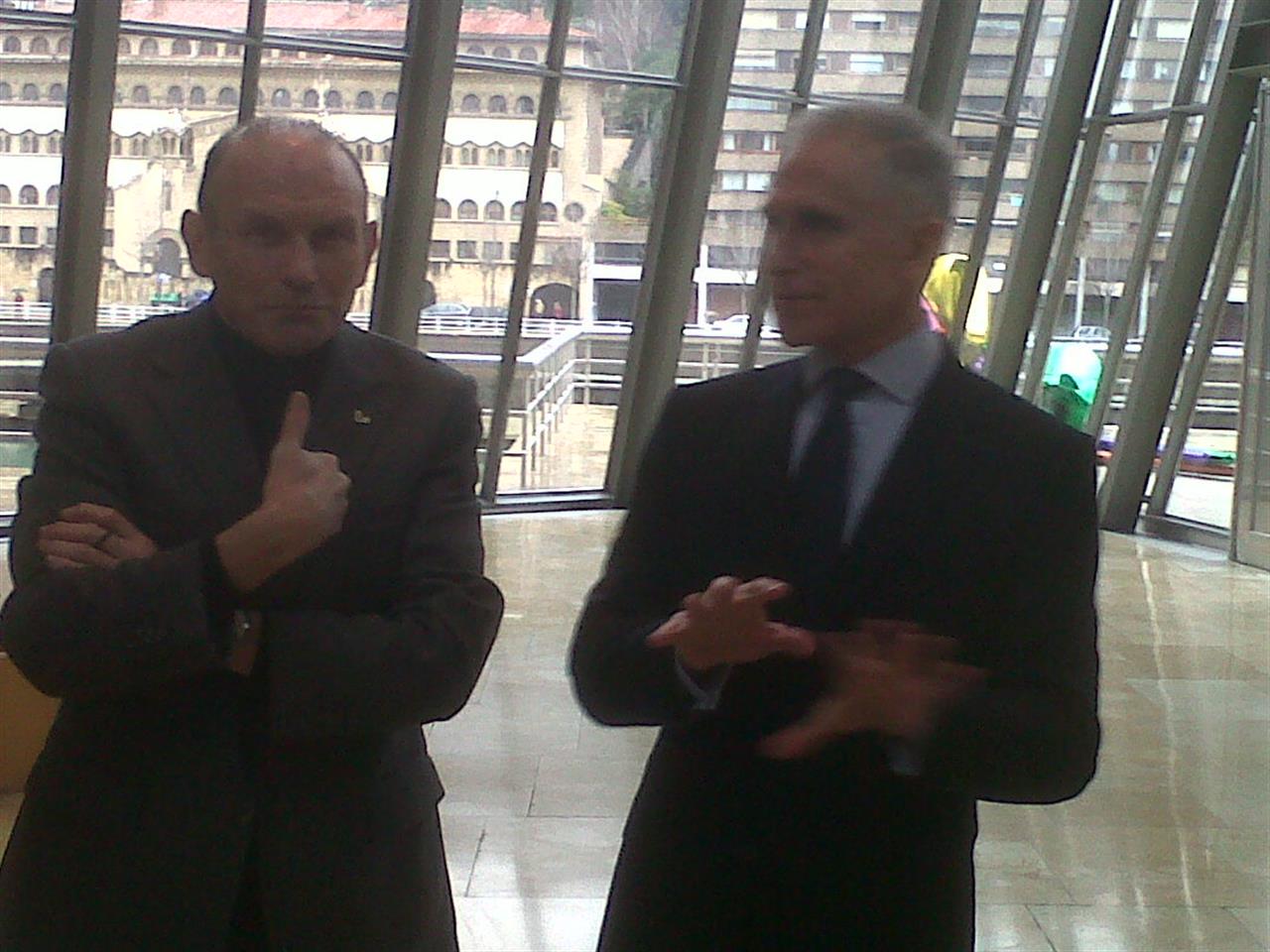From Bilbao to Naples: the Secret of Regeneration and a Post-Crisis Strategy for Europe


I’ve learnt that you never know where you may find the answer. You just keep looking for it.
Who would have foreseen that my trip to Bilbao would reveal a deeper sense of what we are trying to do in Naples and Athens and in devising a new vision for Europe? Serendipity is my star.
This week I was in Bilbao for the launch of The Basque Case: A Comprehensive Model for Sustainable Human Development by Juan José Ibarretxe Markuartu.
If you are not Spanish you would assume this is just a nice publication but that’s not the case. Ibarretxe is the former Lendakari (President) of the Basque Country. From 1999 to ‘09 he led a coalition with a controversial agenda which combined political autonomy with sustainable human development – i.e. innovation, sustainability and social inclusion – in clear opposition to Madrid and neoliberal policies.
The publication is a reflection on that story that led to the success of the Basque Country, now the richest region in Spain and – in my view – an inspiration for devising a post-crisis strategy for Europe.
In 2009 Euclid organized a focus group with third sector leaders and think tanks to discuss the results of the report. Therefore, I was invited together with Andrea Bartoli from Mason Univ and Peter Coleman from Columbia Univ to comment on the outcomes of the publication.
You must know that when you are invited by Basques you can rely on first class treatment. That was the case; actually, the experience was even more exciting this time around. A visit to the Guggenheim Museum was organized for us foreign guests. Juan Ignacio Vidarte, the Museum Director, led with Ledakari (see picture).
The story of the Museum is a true inspiration. Despite the view of the local cultural establishment which wanted a museum to celebrate Basque artists, Lendakari and Vidarte pursued the Guggenheim Foundation which was looking for a location in Europe to open a new museum.
Then, in 1996, the Basques persuaded the foundation to open the new Guggenheim Museum of Contemporary Art in Bilbao through an irresistible financial proposition even overcoming the security concerns. ETA, the terrorist group, was still pretty active at the time.
Today the museum welcomes 1m visitors per year – mainly from abroad – generating €300m in revenue for the city and paying 40m in taxes. The city council provides only €6m in funding. Who says art doesn’t pay? This is return on investment.
That is not all. The museum, paid by the Basques and made successful by an international partnership, gave confidence back to local people and renewed the international reputation of the city. Everybody in the world knows the Guggenheim Museum in Bilbao.
However, when other cities later tried the same trick, spending a fortune to build an iconic contemporary museum, all attempts turned into failures: few visitors, little income, and an annual drain for tax payers. For instance, the Museum of Contemporary Art in Naples – MADRE – opened in 2005 with the political backing of Bassolino, the president of the region, and curated by the internationally celebrated Achille Bonito-Oliva. Since opening, the museum has always been in deficit and is threatened with closure as Bassolino is no longer in place.
How do you explain this? As is clear in the words of Lendakari and Vidarte, the Guggenheim didn’t make the fortune of Bilbao but represented the renaissance of the city. The Museum is the expression of the community, its values and resilience. In contrast, the Neapolitan museum is just the product of few people with no connection to the community and its assets. The Guggenheim Museum in Bilbao summarizes the secret of the Basque Case: shared leadership and governance built on community assets – not just the economic ones but the social, environmental and cultural as well.
As the mushroom is only the visible manifestation of the web of roots lay beneath the ground, so the museum is the result of the strength and spread of the Basque community in Bilbao. Superficial observers mistook what was visible for what lay beneath the ground. They failed when they tried reproducing the magic because they didn’t understand its very true source.
Have you seen the film Avatar? That’s the web of life that keeps everything together and can defeat any external enemy, even the best equipped.
This is what the President Bassolino didn’t understand at the time, but I think we understood with the international social innovation competition for Naples as we built on the assets of the local community without copying anybody but inventing our model from the bottom up. We even used the Camorra – the local organized criminal group – as a resource for the project!
The story of Bilbao is a lesson not just for troubled cities like Naples but for the whole of Europe.
Another line of Lendakari’s publication referring to Basque success is “learn to compete and cooperate”. Following the deindustrialization in ’80s the Basque people had to learn how to become competitive again to prompt economic recovery. They redesigned their industrial productions but, at the same time, retained the sense of common belonging and solidarity.
Today, Basque companies are highly competitive both nationally and internationally. But competition has boundaries especially when you compete with your own. Basques are well aware of such a red line and they don’t cross it or they would undermine the same community that supports their success… and Madrid would take advantage!
It seems that this sense of common belonging has got lost somehow in Europe with the end of the Cold War and entry into the globalization. Without the Soviet threat right at our doorstep Europeans have forgotten why, 50 years ago, they joined forces to secure and build a better future together.
As an Italian citizen, it’s easy for me to understand such a loss, looking at how my home country has been taken down by internal conflicts since ’90s. Perhaps it’s more difficult for nations with a long and consolidated common identity such as France and England which still dream of holding on to their past glories.
History has taught me a different lesson. The successes of the Greek polis, Dutch free provinces and Italian communes and principalities in the Renaissance lay on the right balance between individual competition and shared identify (i.e. respect of the rules, losers and cooperation in case of an external threat).
In my view the Basque case exemplifies such a balance. I wonder if it can teach the rest of Europe how to compete and cooperate again in the 21st century. This would be a step out of the crisis.
Vuoi accedere all'archivio di VITA?
Con un abbonamento annuale potrai sfogliare più di 50 numeri del nostro magazine, da gennaio 2020 ad oggi: ogni numero una storia sempre attuale. Oltre a tutti i contenuti extra come le newsletter tematiche, i podcast, le infografiche e gli approfondimenti.
